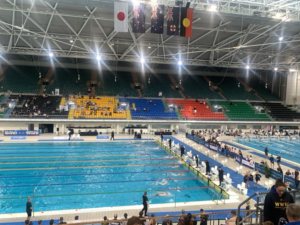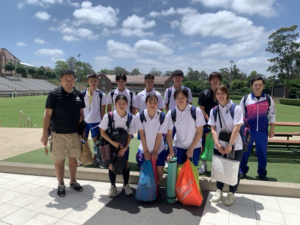The latest issue of our correspondence is released.
View this Correspondence in PDF.
The latest issue of our correspondence is released.
View this Correspondence in PDF.
The latest of our correspondence is released.
View this Correspondence in PDF.
The latest issue of our correspondence is released.
View this Correspondence in PDF.
2023/2024 CLAIR Forum
Theme: Disaster Management and Resilience
Disaster Management is essential for local governments as it helps save lives, protect properties, build resilience, and ensure the overall well-being and stability of communities in the face of disasters such as natural disasters and epidemic outbreaks. And it has become more important than ever in recent years. In the 2024 CLAIR Forum, presented by CLAIR Sydney and UTS, we explored the practices of prevention, response, and recovery to disasters in local governments in Australia and Japan. We also reflected on new ways of thinking about and building resilient communities, built and natural environments, economies and governments.
Date: 11 March,2024 (Monday)
Time: 1:00pm to 5:00pm
Venue: The Japan Foundation, Sydney – Seminar Room (Hybrid)
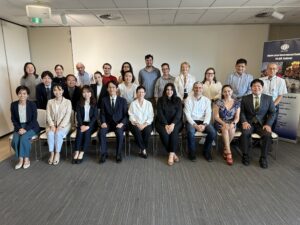
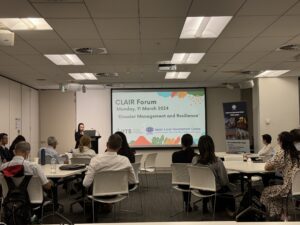
Speakers
– Tomoyuki Takemura (Assistant Director, CLAIR Sydney / Ministry of Internal Affairs and Communications)
Provided an overview of recent disaster occurrences in Japan such as the Noto Peninsula Earthquake, the role of administrative organisations (national, prefectural, and municipal) during disasters, and the updated information on the status of the support system established by the Ministry of Internal Affairs and Communications.
– Reiko Kunisaki (Assistant Director, CLAIR Sydney / Fukuoka Prefectural Government)
Described the recent heavy rain disasters in Fukuoka, efforts in supporting evacuees requiring assistance (including training on municipal guidance, operation of evacuation centres, and creation of individual evacuation plans) in collaboration with local governments and partners.
– Kana Tsujiwaki (Assistant Director, CLAIR Sydney / Wakayama Prefectural Government)
Touched upon the anecdote of Goryo Hamaguchi, a native of Wakayama, which led to the establishment of “World Tsunami Day.” Also explained distinctive disaster countermeasures in Wakayama, such as setting safety levels for evacuation destinations, the “Dokodemo Stand” mobile gas station, and mobile disaster prevention education.
– Nicole Parsons (Manager Regional Resilience Programs, Illawarra Shoalhaven Joint Organisation)
The presentation highlighted collaborative efforts with local governments and partners in the Illawarra Shoalhaven region to reduce disaster risks, including enhancing infrastructure resilience, improving access to geographic data, and developing environmental monitoring and early warning systems.
– Shinnosuke Matsumoto (Assistant Director, CLAIR Sydney / Ichihara city council)
Discussed disaster response in his city, the response system during disasters, types and conditions for opening evacuation centres, and examples of efforts in adapting to changes in operating the centres during the COVID-19 pandemic.
– Hideaki Ota(Assistant Director, CLAIR Sydney / Odawara city council)
Provided an overview of medical services during disasters in Japan, focusing on the Disaster Medical Assistance Team (DMAT), including the outline, process, and roles of the Ministry of Health, Labor and Welfare, and disaster base hospitals. Presented examples, including Odawara City Hospital’s dispatch of DMAT to the Noto Peninsula Earthquake.
– Tommaso Briscese (General Manager, Burwood Council) & Miriam Wassef(Executive Manager, Place Management and Communications Burwood Council)
Presented Burwood Council’s response to and recovery efforts for COVID-19, including care for the community, financial support for small and medium-sized enterprises for economic recovery, and events to promote human interaction that were reduced following the outbreak.
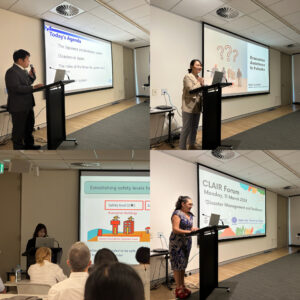
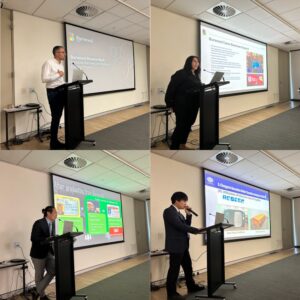
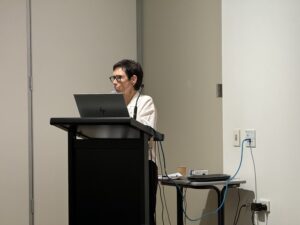
The Q&A session allowed for exchanges of many questions and opinions among participants. Carol Mills concluded the forum, reflecting on the discussions.
The latest issue of our correspondence is released.
View this Correspondence in PDF.
 From the 3rd to the 13th of December, eight selected swimmers from the Fukuoka Swimming Association visited NSW, where they participated in joint training sessions with a local school and competed in the 2024-25 Speedo NSW Senior State Age Championships.
From the 3rd to the 13th of December, eight selected swimmers from the Fukuoka Swimming Association visited NSW, where they participated in joint training sessions with a local school and competed in the 2024-25 Speedo NSW Senior State Age Championships.
During the joint training, the athletes deepened their connections, and in the competition, the Fukuoka swimmers achieved remarkable success, earning numerous medals.
The visit is based on the Memorandum of Understanding signed in December 2023 between the Fukuoka Prefecture, the Fukuoka Swimming Association, and Swimming NSW. CLAIR Sydney received a request from Fukuoka Prefecture to assist them with their activities and accompanied them during some parts of their visit.
We will continue to support and deepen exchanges in the field of sports between Fukuoka Prefecture and NSW.
To all the athletes, coaches, and accompanying staffs, Otsukaresamadeshita!
The latest issue of our correspondence is released.
View this Correspondence in PDF.
The latest issue of our correspondence is released.
View this correspondence in PDF.
The latest issue of our correspondence is released.
View this Correspondence in PDF.

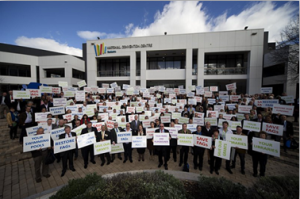





 From the 3rd to the 13th of December, eight selected swimmers from the Fukuoka Swimming Association visited NSW, where they participated in joint training sessions with a local school and competed in the 2024-25 Speedo NSW Senior State Age Championships.
From the 3rd to the 13th of December, eight selected swimmers from the Fukuoka Swimming Association visited NSW, where they participated in joint training sessions with a local school and competed in the 2024-25 Speedo NSW Senior State Age Championships.